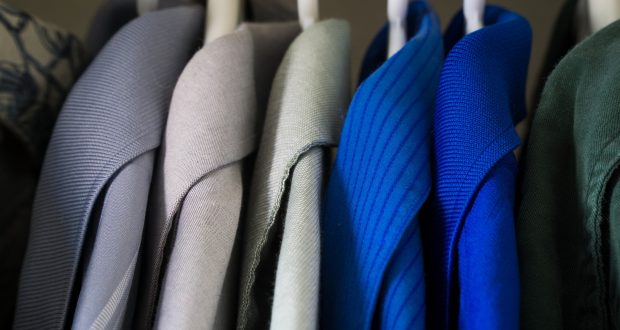Deciding what will happen to the clothes and article of deceased is a hard task both physically and emotionally because by choosing them thousands of memories will come to your mind, which will lead to the emptiness left by that loved one.
In this article YVK will give you some advice so that you can face this task as well as the need to make decisions that allow you to distinguish which objects are really significant for you.
Ask for help
Can you imagine opening your loved one’s room and collecting only their belongings? While it is important to have time with your memories, friends and family will be a great emotional support at times when you feel no longer have enough energy to clean another closet or to dismantle your library.
This task involves a deep emotional challenge so it is advisable that you think of a friend or family member who can help you face this moment.
Consider only those people who really want to help you without pressing more than you are already at that moment.
In this way, you will not only be accompanied, but you will be able to share the anecdotes and emotions that radiate each of those objects that were part of the life of your loved one.
You can even organize a family meeting to establish who is willing to help you, what will be the responsibilities they will assume and which are the most important of them. For example, remove clothes, organize personal documentation, close bank accounts, etc.
Organization.
You should not empty the room in a single day or solve everything as if nothing happened to you.
Think that you will meet again with objects that you have not seen for a long time, as well as with continuous reminders of the painful absence of your loved one.
Take small breaks every time you perform this task in which you can go out to take a breath and reflect on everything you are living.
Establish a list of priorities that must be done in the first place for practical reasons such as closing bank accounts, withdrawing your things from work, paying outstanding bills, etc.
You can designate a friend and / or family member trained to carry out some of these tasks while you take care of others.
It is a physically and emotionally overwhelming task that is important that you establish small daily goals.
For example, one day you can take care of the cloakroom, another day of your desk, another day of your personal documentation, etc. until finally completing his entire room.
Be meticulous.
There comes a point where you get overwhelmed and decide to throw things away without checking them just to get rid of them.
Serious error . You may be losing valuable things that the deceased person has hidden or stored in strange places. Check clothing pockets, boxes, suitcases, etc. Surely you’ll find jewelry or money.
Take care of the
documents.
And in this you must be extremely meticulous with the papers that you throw when ordering the house. It is likely that during the process you will need them and it is better to be safe than sorry.
Ask what they want to
keep.
You may decide to do this task alone or perhaps some family members may not even feel prepared to pick up these items, so it would be useful to design a list with the name of each person in the family to indicate what belongings they would like to keep.
Ask them in advance so that they can take the time to think about what objects they would like to keep, if you do not talk this with the family and start giving away the objects according to your own perception, it is possible that you have to face some conflicts since what for a member of the family brings back beautiful memories, for another it is just one more object among the many that your loved one used to keep.
Keep and take care of
memories:
Photos, letters, things with high emotional value. It can be hard at first because they will bring you many memories but over time those memories will make you smile and you will learn to think of your loved one with happiness and affection.
The good work of the
day:
You should only make this decision when you feel ready to do it. The donation of your objects will allow you to transform all of your pain into a beautiful act of love and solidarity that your loved one would be really proud of.
While it may be difficult to know what to donate and to whom, it is sure to give it to charity whose cause you agree with or believe that your loved one would have liked to make this donation.
Each personal object of our loved one preserves not only a myriad of emotions but also an infinity of long-forgotten memories that we will have to face when we pick up their things from home.
Take your time and let your own heart dictate the right moment to begin this emotionally painful task.














